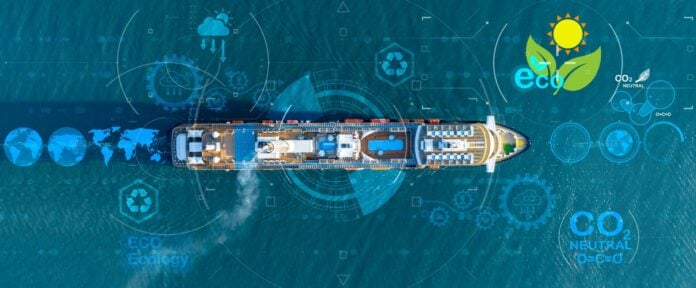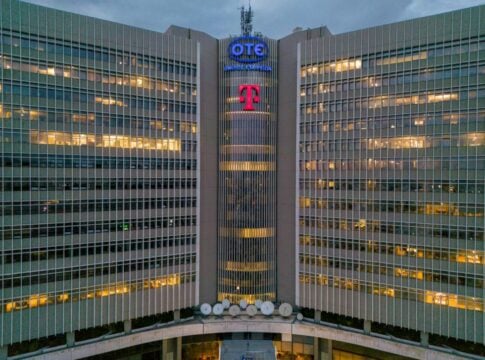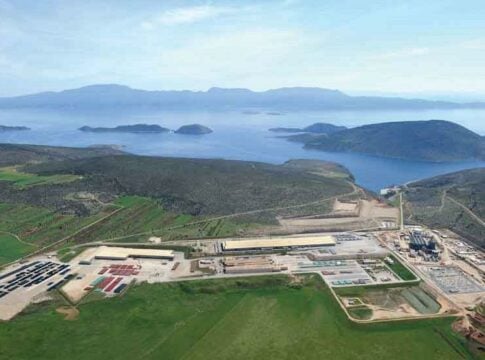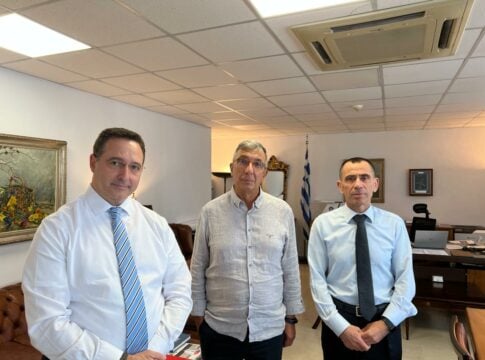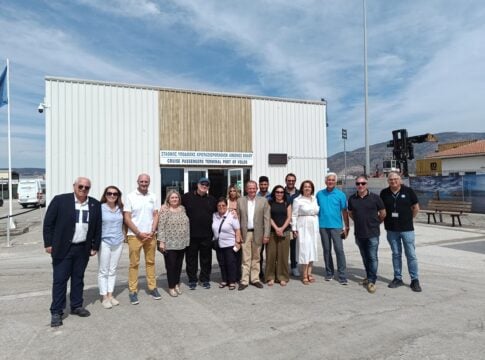Greece’s short sea shipping sector is facing major challenges, due to the reduction and aging of the fleet and the new EU environmental requirements.
These conditions bring to the fore the need to renew the fleet. The Hellenic Short Sea Shipowners Association and its president Charalambos Simantonis, in collaboration with the Foundation for Economic and Industrial Research (IOBE), presented the study “Shortsea Shipping: Trends, Challenges and Impact on the Greek Economy”, at the Eugenides Foundation
According to the study, a major issue is the reduction of the national transport fleet (in terms of numbers and capacity) and its average age.
In the period 2004-2025, the number of cargo ships under 5,000 GRT decreased by 31.3% and those between 5,000 and 20,000 GRT by 64.1%, while tankers under 5,000 GRT decreased by 42% and those between 5,000 and 20,000 GRT by 27.8%.
At the same time, the fleet continues to age, as over 70% of it is over 30 years old (cargo ships and tankers), which requires immediate replacement with newer ships or modernization of existing ones.
Meanwhile, 40% of tankers are between 15-24 years old, while almost all general cargo ships are over 30 years old.
The high average age does not allow for significant technological upgrades of the fleet and limits compliance with new environmental requirements, so a fleet renewal strategy is now considered necessary, especially for general cargo ships.
At the same time, the IOBE report highlighted the economic implications of the adoption of the new “green” regulations on the path of shortsea shipping towards the green transition.
Shortsea shipping will not be able to strengthen its contribution to the Greek economy without the adoption of targeted strategies for the adaptation of its fleet and the relevant port infrastructure.
However, it should be noted at the same time that shortsea shipping will face intense pressures on the path towards the green transition.
Specifically, these pressures are reflected economically as follows:
The total cost of compliance with the new measures for the domestic shortsea shipping sector is estimated at 225 million euros by 2030. The increased cost translates into an additional burden on freight rates of up to 38.6%.
The loss of revenue for shortsea shipping companies from lower traffic is estimated at 140 million euros (-17.0% of total revenue) in 2030, after deducting the amounts corresponding to the new burdens.
The losses from the imposed measures in GDP terms are approaching 200 million euros in 2030, taking into account the indirect and induced effects, while the revenue for the State is estimated to be reduced by 35 million euros in 2030.
The losses in jobs in the entire national economy are approaching 1.2 thousand in 2030.
Key proposals of the strategic transition plan
Specific proposals, which will form the basis of the strategic transition plan, according to the IOBE report, are:
– Creation of financial mechanisms to finance the required investments in ships and infrastructure imposed by the green transition.
– The cost of compliance with the new environmental requirements can also be reduced with additional initiatives, including measures to minimize the price difference between new technologies and conventional fuels, such as the possibility of “carbon contracts for differences”, through which a minimum price for new fuels is achieved for producers, thus reducing the risk they face in developing innovative technologies and promoting the development of the relevant production capacity.
– Extension of the favourable tax treatment of marine fuels (zero ETD tax) and provision of a discount on port dues with the aim of supporting the competitiveness of Greek shortsea shipping.\
– The FuelEU pooling mechanism can also contribute to reducing compliance costs, providing shipowners with some flexibility in achieving the targets.- It is proposed to examine the possibility of simplifying the MRV, ETS and FuelEU procedures for ships below a GRT threshold.
– Training of human resources in skills required for the smooth implementation of new technologies in the daily operation of shortsea shipping businesses.


